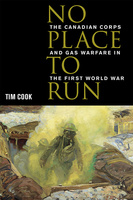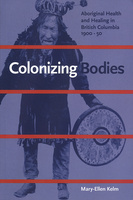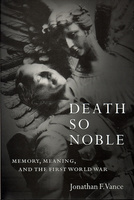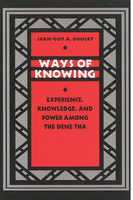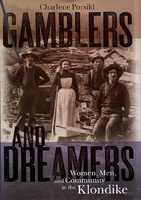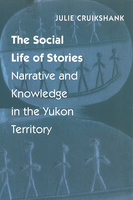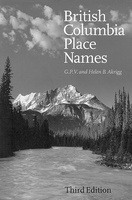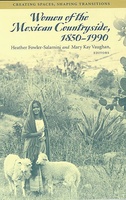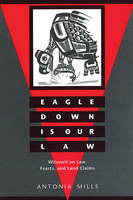Against the Grain
Foresters and Politics in Nova Scotia
This book argues that forestry is a more diverse and complex activity than has been generally recognized. It also underlines the political character of the profession.
The Burden of History
Colonialism and the Frontier Myth in a Rural Canadian Community
Since the Time of the Transformers
The Ancient Heritage of the Nuu-chah-nulth, Ditidaht, and Makah
This book examines over 4000 years of culture history of the related Nuu-chah-nulth, Ditidaht, and Makah peoples on western Vancouver Island and the Olympic Peninsula.
Huron-Wendat
The Heritage of the Circle
In this book, Georges Sioui, who is himself Wendat, redeems the original name of his people and tells their centuries-old history by describing their social ideas and philosophy and the relevance of both to contemporary life.
Pacific Empires
Essays in Honour of Glyndwr Williams
A new interest in European maritime exploration was aroused with the publication of the first volume of J.C. Beaglehole's edition of The Journals of Captain James Cook in 1955. In the forty-odd years since then ...
No Place to Run
The Canadian Corps and Gas Warfare in the First World War
This book is a reevaluation of the Canadian Corps and poison gas in WWI. It examines how the Canadian Corps organized and protected its soldiers from poison gas.
Once Upon an Oldman
Special Interest Politics and the Oldman River Dam
Once Upon an Oldman is an account of the controversy that surrounded the Alberta government's construction of a dam on the Oldman River to provide water for irrigation in the southern part of the province.
Another Kind of Justice
Canadian Military Law from Confederation to Somalia
The first historical survey of Canadian military law, providing insights into military justice in Canada, the purpose of military law, and the level of legal professionalism within the Canadian military.
Colonizing Bodies
Aboriginal Health and Healing in British Columbia, 1900-50
This detailed but highly readable ethnohistory shows how a pluralistic medical system evolved among Canada’s most populous Aboriginal population.
Clearcutting the Pacific Rain Forest
Production, Science, and Regulation
This book integrates class, environmental, and political analysis to uncover the history of clearcutting in the Douglas fir forests of BC, Washington, and Oregon between 1880 and 1965.
Death So Noble
Memory, Meaning, and the First World War
This book examines Canada’s collective memory of the First World War through the 1920s and 1930s. It is a cultural history, considering art, music, and literature.
Painting the Maple
Essays on Race, Gender, and the Construction of Canada
Gathering insights from numerous fields about the construction of Canada, this provocative volume illuminates the challenges that lie ahead for all Canadians who aspire to create a better future.
Ways of Knowing
Experience, Knowledge, and Power among the Dene Tha
Drawing on twelve years of fieldwork at Chateh, Jean-Guy Goulet delineates the interconnections between the strands of meaning and experience with which the Dene Tha constitute and creatively engage their world.
The Limits of Labour
Class Formation and the Labour Movement in Calgary, 1883-1929
Spuzzum
Fraser Canyon Histories 1808-1939
Juxtaposing historical narratives and cultural interpretation, this book explores the history of Spuzzum and the Nlaka'pamux people on the turbulent Fraser River.
Fort Langley Journals, 1827-30
Contains a wealth of information about social and administrative life at Fort Langley.
Aboriginal and Treaty Rights in Canada
These essays aim to address, and redress, this bias of the colonial doctrine that continues to define and shape Aboriginal and treaty rights in the Canadian legal system.
Borderlands
How We Talk About Canada
In Borderlands, W.H. New poetically and metaphorically considers the image of 'the border' in Canada and how it affects the way Canadians look at themselves and their society.
Legends of Our Times
Native Cowboy Life
Throughout the world, the image of the cowboy is an instantly recognized symbol of the North American West. This lavishly illustrated book tells the story of some of the first cowboys – the Native peoples of the Plains and Plateau.
Positioning the Missionary
John Booth Good and the Confluence of Cultures in Nineteenth-Century British Columbia
This book examines Anglican missionary work in nineteenth-century British Columbia at several scales: the local ethnographic literature; histories of contact and conflict in mainland B.C. from the early nineteenth century; the theology and sociology of mission; and the recent critical literature on European colonialism.
Gamblers and Dreamers
Women, Men, and Community in the Klondike
Gamblers and Dreamers tackles some of the myths about the history of the North in the era of the gold rush.
The Social Life of Stories
Narrative and Knowledge in the Yukon Territory
In this illuminating study of indigenous oral narratives, Julie Cruikshank moves beyond the text to explore the social power and significance of storytelling.
The Dynamics of Native Politics
The Alberta Metis Experience
A socio-cultural examination of the political organizations that advocate for Aboriginal rights in government policy and the rationale behind them.
Canada and Quebec
One Country, Two Histories: Revised Edition
In this revised edition of Canada and Quebec, Robert Bothwell describes the lead-up to the October 1995 referendum and traces political developments from its immediate aftermath to the present.
Japanese Historians and the National Myths, 1600-1945
The Age of the Gods and Emperor Jinmu
This is the first comprehensive study of modern Japanese historians and their relationship to nationalism and how they interpreted ancient myths of their origins.
Hidden Dimensions
The Cultural Significance of Wetland Archaeology
Scholars from around the globe examine several aspects of wetland archaeology in North America, Mexico, Europe, eastern Siberia, and New Zealand.
The Lifeline of the Oregon Country
The Fraser-Columbia Brigade System, 1811-47
In The Lifeline of the Oregon Country, James Gibson compellingly immerses the reader in one of the most intractable problems faced by the Hudson’s Bay Company: how to realize wealth from such a remote and formidable land.
Creating Historical Memory
English-Canadian Women and the Work of History
This engaging collection of essays seeks to create an awareness of the contributions made by women to history and the historical profession from 1870 to 1970 in English Canada.
Walking in Indian Moccasins
The Native Policies of Tommy Douglas and the CCF
This landmark study examines the Tommy Douglas's Co-operative Commonwealth Federation government - the first socialist government in North America - and the development of policies aimed at Indian and Metis people in the post-war period.
Trading Beyond the Mountains
The British Fur Trade on the Pacific, 1793-1843
This books examines the Hudson's Bay company exploration efforts beyond the Rocky Mountains to the Pacific Ocean from 1793 to 1843 – which led to the commercial development of the Pacific coast and the Cordilleran interior of western North America.
As Their Natural Resources Fail
Native Peoples and the Economic History of Northern Manitoba, 1870-1930
In this groundbreaking study, Frank Tough examines the role of Native peoples, both Indian and Metis, in the economy of northern Manitoba from Treaty 1 to the Depression.
A Heart at Leisure from Itself
Caroline Macdonald of Japan
This book throws light on Japanese-Canadian relations in the first few decades of this century.
The Resettlement of British Columbia
Essays on Colonialism and Geographical Change
In this beautifully crafted collection of essays, Cole Harris reflects on the strategies of colonialism in British Columbia during the first 150 years after the arrival of European settlers.
The Emergence of Social Security in Canada
Third Edition
The first and most detailed history of Canadian social security from colonial times to the present, The Emergence of Social Security in Canada has become a standard text in social work and related courses in post-secondary institutions across Canada, since its publication in 1980.
Life in Stone
A Natural History of British Columbia's Fossils
Richly illustrated with photographs and drawings, this is the first book to focus on British Columbia's fossils.
Making Vancouver
Class, Status, and Social Boundaries, 1863-1913
Explores social relationships in Vancouver from 1863 to 1913.
Early Human Occupation in British Columbia
A vital contribution to current knowledge about the prehistory in British Columbia, 10,500 to 5,000 years ago.
The Vancouver Island Letters of Edmund Hope Verney
1862-65
This previously unknown collection of letters lets us experience colonial British Columbia through the eyes of a young British naval officer who spent three years on Vancouver Island commanding a Royal Navy gunboat during the Cariboo gold rush.
A Thousand Blunders
The Grand Trunk Pacific Railway and Northern British Columbia
A provocative account of one of the greatest entrepreneurial failures in Canadian history, this book documents the downfall of the Grand Trunk Pacific Railway, which helped develop the north-central corridor of British Columbia – then collapsed dramatically in 1919.
Paul Kane's Great Nor-West
In this beautifully designed and richly illustrated book, Diane Eaton and Sheila Urbanek re-create Paul Kane's heroic journey across Canada and bring to life the people, places, and events he experienced.
Taking Control
Power and Contradiction in First Nations Adult Education
A critical ethnography of the Native Education Centre in Vancouver, British Columbia.
Britain and the Origins of Canadian Confederation, 1837-67
Ged Martin offers a sceptical review of claims that Confederation answered all the problems facing the provinces, and examines in detail British perceptions of Canada and ideas about its future.
Women of the Mexican Countryside, 1850-1990
Too often in the history of Mexico, women have been portrayed as marginal figures rather than legitimate participants in social processes. As the twentieth century draws to a close, Mexican women of the countryside can be seen as true historical actors: mothers and heads of households, factory and field workers, community activists, artisans, and merchants. In this new book, thirteen contributions by historians, anthropologists, and sociologists--from Mexico as well as the United States--elucidate the roles of women and changing gender relations in Mexico as rural families negotiated the transition from an agrarian to an industrial society.
Drawing on Mexican community studies, gender studies, and rural studies, these essays overturn the stereotypes of Mexican peasant women by exploring the complexity of their lives and roles and examining how these have changed over time. The book emphasizes the active roles of women in the periods of civil war, 1854-76, and the commercialization of agriculture, 1880-1910. It highlights their vigorous responses to the violence of revolution, their increased mobility, and their interaction with state reforms in the period from 1910 to 1940. The final essays focus on changing gender relations in the countryside under the impact of rapid urbanization and industrialization since 1940.
Because histories of Latin American women have heretofore neglected rural areas, this volume will serve as a touchstone for all who would better understand women's lives in a region of increasing international economic importance. Women of the Mexican Countryside demonstrates that, contrary to the peasant stereotype, these women have accepted complex roles to meet constantly changing situations.
CONTENTS
IWomen and Agriculture in Nineteenth-Century Mexico
1. Exploring the Origins of Democratic Patriarchy in Mexico: Gender and Popular Resistance in the Puebla Highlands, 1850-1876, Florencia Mallon
2. "Cheaper Than Machines": Women and Agriculture in Porfirian Oaxaca (1880-1911), Francie R. Chassen-López
3. Gender, Work, and Coffee in C¢rdoba, Veracruz, 1850-1910, Heather Fowler-Salamini
4. Gender, Bridewealth, and Marriage: Social Reproduction of Peons on Henequen Haciendas in Yucatán (1870-1901), Piedad Peniche Rivero
IIRural Women and Revolution in Mexico
5. The Soldadera in the Mexican Revolution: War and Men's Illusions, Elizabeth Salas
6. Rural Women's Literacy and Education During the Mexican Revolution: Subverting a Patriarchal Event?, Mary Kay Vaughan
7. Doña Zeferina Barreto: Biographical Sketch of an Indian Woman from the State of Morelos, Judith Friedlander
8. Seasons, Seeds, and Souls: Mexican Women Gardening in the American Mesilla (1900-1940), Raquel Rubio Goldsmith
IIIRural Women, Urbanization, and Gender Relations
9. Three Microhistories of Women's Work in Rural Mexico, Patricia Arias
10. Intergenerational and Gender Relations in the Transition from a Peasant Economy to a Diversified Economy, Soledad González Montes
11. From Metate to Despate: Rural Women's Salaried Labor and the Redefinition of Gendered Spaces and Roles, Gail Mummert
12. Changes in Rural Society and Domestic Labor in Atlixco, Puebla (1940-1990), Maria da Glória Marroni de Velázquez
13. Antagonisms of Gender and Class in Morelos, Mexico, JoAnn Martin
The Klondike Stampede
This classic in Yukon gold rush literature was originally published in 1900 and has long been out of print.
Objects of Concern
Canadian Prisoners of War Through the Twentieth Century
Jonathan Vance examines Canada's role in the formation of an important aspect of international law, traces the growth and activities of a number of national and local philanthropic agencies, and recounts the efforts of ex-prisoners to secure compensation for the long-term effects of captivity.
Houses for All
The Struggle for Social Housing in Vancouver, 1919-1950
This is the story of the struggle for social housing in Vancouver between 1919 and 1950.
Gold at Fortymile Creek
Early Days in the Yukon
Michael Gatesfollows the first gold-seekers from their arrival in 1873 until the stampede to the Klondike in 1896, capturing the essence of these early years of the gold rush and chronicling the trials and successes of the hardy individualists who searched for gold in the wilderness.
Eagle Down Is Our Law
Witsuwit'en Law, Feasts, and Land Claims
The struggle of the Witsuwit'en peoples to establish the meaning of aboriginal rights.






